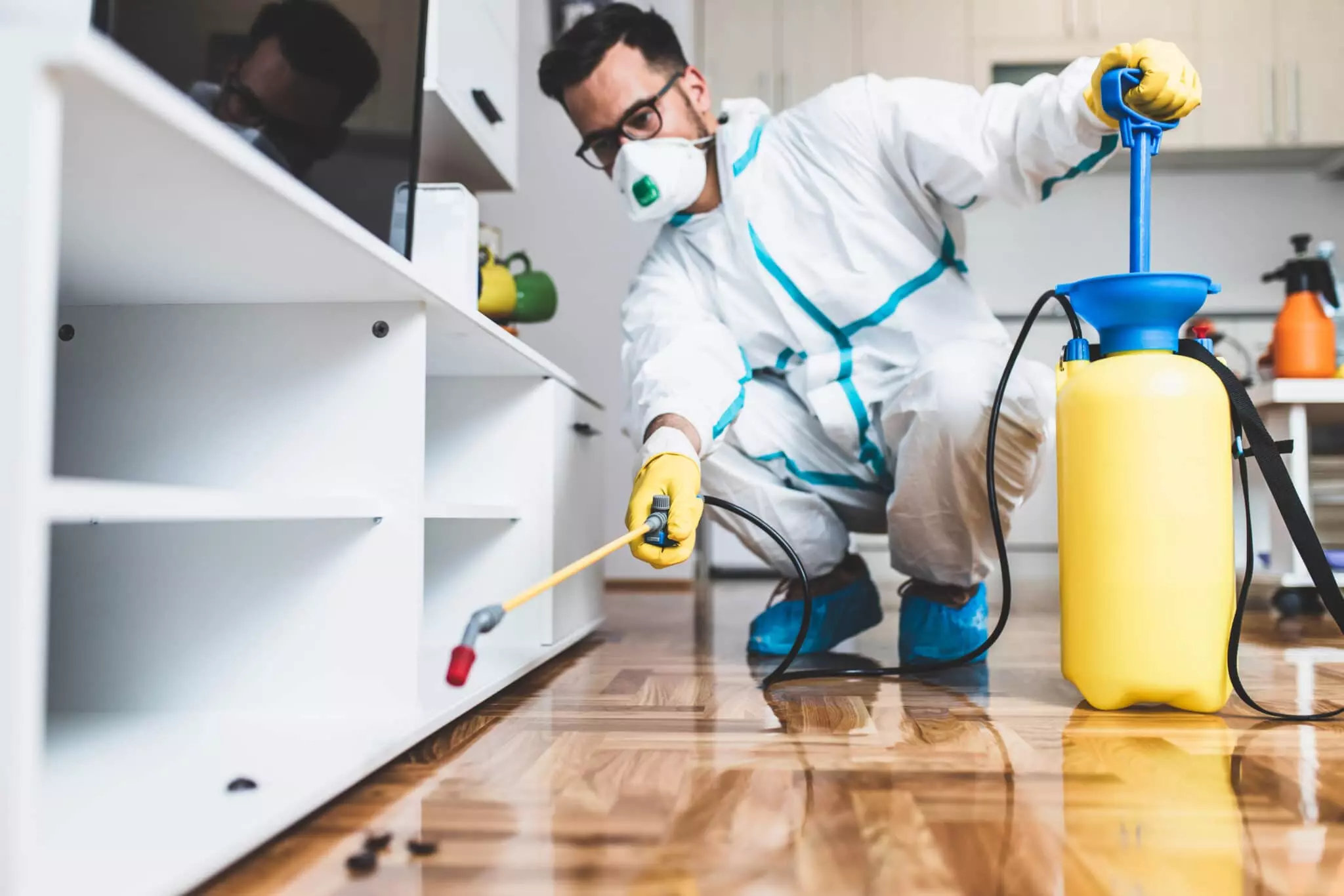A1 Pest Control Charlotte NC Bed Bugs - Expert Elimination Services
A1 Pest Control Charlotte NC Bed Bugs - Expert Elimination Services
Blog Article
Bed Bug Therapy Malfunction: Contrasting Chemical Vs. Non-Chemical Solutions
In the realm of pest control, specifically when taking care of the consistent problem of bed bugs, the selection between chemical and non-chemical therapy remedies can be a crucial one. Both methods provide distinctive benefits and disadvantages, influencing elements such as performance, security factors to consider, and overall price. By taking a look at the nuanced details of each technique, a clearer understanding of which path to pursue in resolving a bed insect problem can be achieved.
Performance of Chemical Therapies
Chemical treatments for bed pest infestations have actually been widely identified for their potent and fast efficiency in eradicating these insects. When considering the performance of chemical therapies, it is essential to recognize that they can offer a fast and comprehensive solution to a bed bug issue. Specialist pest control men typically depend on insecticides to target bed insects at various stages of their life cycle, consisting of adults, nymphs, and eggs. These chemicals commonly function by interfering with the bed pests' nerves, bring about paralysis and ultimate fatality.
Furthermore, chemical treatments have the advantage of offering recurring impacts, suggesting that they can remain to get rid of bed insects also after the first application. This recurring activity is especially useful in combating any kind of possible re-infestations. In addition, the fast action of chemical treatments can bring relief to individuals encountering extreme bed bug infestations, allowing them to regain control of their space swiftly.
Security Worry About Chemical Solutions
When using chemical solutions for bed pest therapy is ensuring the safety and security of residents and the setting,One essential element that calls for cautious consideration. While chemical therapies can be efficient in eliminating bed pests, they might pose threats otherwise taken care of effectively. Among the primary safety and security worry about chemical options is the prospective injury they can trigger to human wellness. Direct exposure to specific chemicals utilized in bed pest therapies can bring about respiratory system concerns, skin inflammation, or various other negative responses, specifically in individuals with pre-existing conditions or level of sensitivities. Additionally, incorrect application or dosage of chemical pesticides can cause hazardous deposits lingering in the cured area, posturing lasting wellness threats to owners.
Additionally, the environmental impact of chemical remedies is another substantial factor to consider. Some pesticides used in bed pest treatments might be unsafe to beneficial insects, wildlife, and communities if they leach right into the soil or water supply. It is vital to make use of chemical therapies sensibly, adhering to safety and security standards, and taking into consideration much less harmful choices to alleviate these risks and ensure the reliable and risk-free monitoring of bed bug infestations.
Advantages of Non-Chemical Methods
Thinking about the possible security problems and ecological influence associated with chemical options for bed bug treatment, exploring non-chemical methods provides an appealing alternative with a number of unique advantages. Non-chemical therapies are ecologically friendly, as they do not contribute to air or water pollution, making them a sustainable choice for pest control.
Additionally, non-chemical remedies can be effective in targeting bed bugs, consisting of hard-to-reach locations where chemical therapies might not permeate. Techniques such as heat treatment, vacuuming, heavy steam A1 charlotte bed bug exterminator cleansing, and bed mattress encasements supply extensive eradication without using unsafe chemicals. Moreover, non-chemical approaches can be less turbulent, requiring marginal prep work and enabling for quicker reentry into treated locations. Generally, choosing non-chemical bed insect treatment methods not just focuses on safety and ecological defense yet likewise guarantees efficient and thorough bug control.
Limitations of Non-Chemical Treatments

Additionally, non-chemical therapies commonly need numerous applications to attain effective elimination. This can be lengthy and might not constantly assure total elimination of all bed pests and their eggs, especially in hard-to-reach or covert areas.
Additionally, the success of non-chemical treatments heavily relies upon proper implementation and thoroughness, which can be testing for individuals without specialist expertise. Insufficient application of non-chemical techniques might lead to insufficient elimination, leading to consistent infestations and the demand for additional therapies.
For that reason, while non-chemical therapies have their benefits, it is crucial to acknowledge these limitations and consider them when establishing the most efficient strategy for handling bed pest invasions.
Price Comparison: Chemical Vs. Non-Chemical Options
Offered the restrictions connected with non-chemical treatments, a necessary element to review in the context of bed bug management is the price comparison in between chemical and non-chemical alternatives. In comparison, non-chemical treatments like heat treatment or steam can be more pricey, with expenses ranging from $1,000 to $6,000 for a whole home. While the first price of chemical therapies may appear reduced, multiple therapies might be needed to fully eradicate the problem, potentially increasing the total price.
Verdict

Taking into consideration the possible security worries and ecological impact associated with chemical remedies for bed insect treatment, discovering non-chemical approaches offers an encouraging option with several distinctive benefits.Offered the limitations linked with non-chemical treatments, an important facet to examine in the context of bed bug management is the cost contrast between chemical and non-chemical choices. In contrast, non-chemical treatments like warmth therapy or heavy steam can be more costly, with costs ranging from $1,000 to $6,000 for a whole home. While the preliminary cost of chemical therapies may seem reduced, multiple therapies may be called for to completely get rid of the invasion, possibly increasing the general price.In verdict, when contrasting chemical and non-chemical bed bug treatment alternatives, it is important to take into consideration effectiveness, safety and security, benefits, constraints, and cost.
Report this page